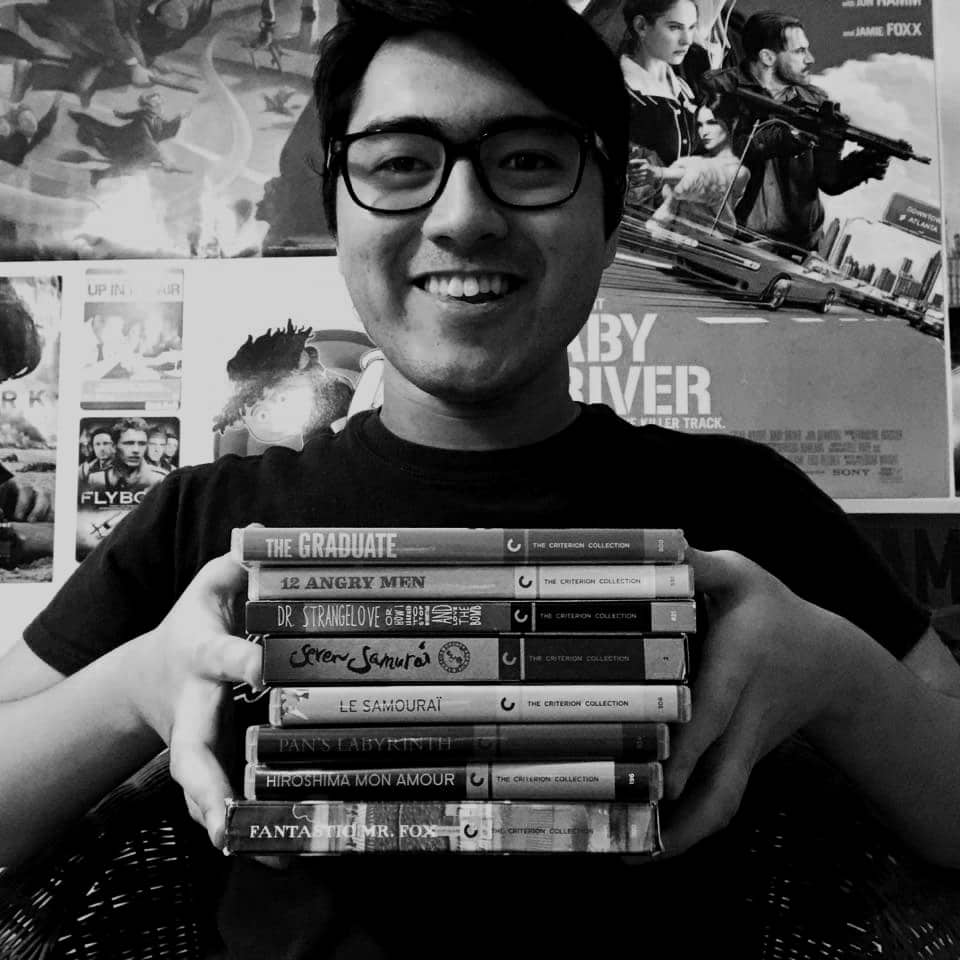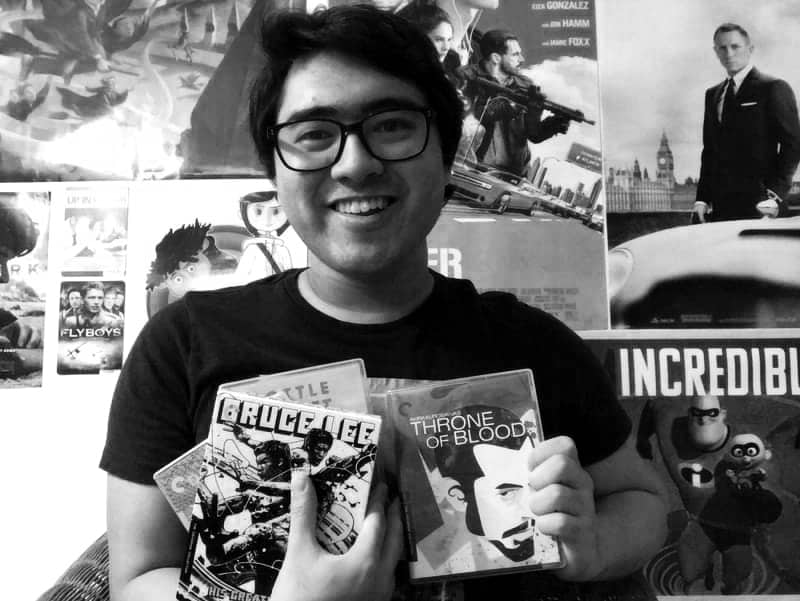
-Who is Mac Escalante?
My name is Mac Escalante and I am a recent graduate from the University of Georgia. I was a Film Studies and Comparative Literature major and I have always been appreciative of the arts! To describe myself may be a little challenging as I am still developing my character and identity to the world. If I had to describe who I am, I would love to describe myself as an ambitious artist. It is my dream to be a director, actor, and screenwriter and to share my work with the entire world.
-What inspired you to become a filmmaker?
My inspirations came from many sources. It is absolutely challenging to explore how I was inspired to be a filmmaker since my inspiration has been drawn by many artists from cinema, music, paintings, etc. Ever since I was a child, I loved movies very much. I watched many movies growing up with my family and went to the theaters many times. After seeing many countless films, I then realized that I too could be up there with the movie stars and creative directors behind the pictures I saw in cinema. Movies really helped me imagine big ideas, moved me through difficult periods of my life, and encouraged my perspectives on how I view life. I wanted to be a part of that artistic movement which made me very glad to have been inspired by cinema itself in becoming my own director, actor, and writer. The directors that have really inspired me to be the filmmaker I am today are Wes Anderson, Stanley Kubrick, Martin Scorsese, Sam Raimi, Steven Spielberg, George Lucas, Christopher Nolan, and the list goes on haha.

-Do you think the cinema can bring a change in the society?
Having cinema change society has always been one of the most difficult questions I had to ask myself. It is a very open ended question because every artist has a personal struggle about whether or not their art is contributing to the flaws of society. In my personal experience, I at first thought that my artistic dream of wanting to be in cinema was useless. During the difficult times of the COVID19 pandemic, I felt very guilty about how I was not pursuing a medical career. I felt as if movies were not making a difference because doctors and nurses with medical knowledge were immediately needed at the front lines to combat the virus. Once lockdown came, many theaters struggled and even shut down which made me first believe that my cinematic dream was unachievable. After reminiscing about the difficulties of COVID and other tragic events, I looked back to different parts of history in which cinema reflected those difficult and confusing times. I realized that filmmakers were also immediately needed to not only comfort and entertain audiences but also encourage audiences to change their perspective on the world. This then made me reflect deeply about how movies changed society in the past and how they brought change among people’s perspectives of the world. A few films that really changed society that I could share are Dr. Strangelove (1964), Do The Right Thing (1989), Spider-Man (2002), and the list goes on. I then realized that all of those films combined really challenged society’s perspective on certain issues of the time.
One of my favorites of the titles I mentioned is Dr. Strangelove by Stanley Kubrick since that film was absolutely necessary for the ’60s as it made audiences question their safety during the Cold War and Arms Race between the United States and Soviet Union. The film came out in 1964 which was 2 short years after the Cuban Missile Crisis and 1 year after the assassination of JFK and people at the time were extremely overwhelmed by the political chaos haha. Dr Strangelove was then responsible for not only satirizing the American and Soviet governments but also changed the way people viewed the two superpowers of the 20th century. Kubrick believed that the arguments among Western and Soviet leaders were very pointless and that cinema can illustrate the ridiculousness of their arguments. Dr. Strangelove then became a huge hit among audiences and was very responsible for changing 1960s society’s viewpoints on the Cold War and was even one of the first 25 films to be preserved for the National Film Registry in 1989.
If a film like Dr. Strangelove has shifted society back in the 1960s, I am really hoping that my film “Aubrey’s Understandings” can shift people’s viewpoints on mental health among young college students in the 21st century. It is a little tricky to see how more people can respond to my student film as I have only shared it with a limited number of audience members. However, I am absolutely looking forward to people’s reception of my film.

-What would you change in the world?
Changing the world is definitely a job that should not be done alone as it requires many people to help and contribute their inputs. But if I had to change the world, I would want to change people’s viewpoints on power and cooperation. I deeply wish that leaders from all over the world could be more tolerant and understanding of each other because of how working together can progress the entire world. We are unfortunately living in a very polarizing and divided world and it definitely makes me sad to see how many people focus more on superiority than cooperation. But if I had to change the world, I would wish for more people to be more tolerant so society can progress more and more in each generation.
-Where do you see the film industry going in the next 100 years?
To see where film will go within the next 100 years is another tricky question to answer. The artform of cinema is surprisingly very young compared to other art forms that have existed for centuries. Music, paintings, and literature have existed throughout many different generations and film is only about 130 years old. However within its 130 years, it is very surprising to see how quickly advanced it has gotten in 2022 especially with today’s environment of digital filmmaking and motion capture technology. Despite the advancements of those aspects of film, my wish for the next 100 years of the film industry is to preserve as many more old films as we can. Many filmmakers need to preserve as many old celluloid films as they can since those are the blueprints to how the entire movie was made. They can also be preserved for the next generation of filmmakers and audiences that we will soon see within the next century as it is very important to maintain the appreciation for cinema.
